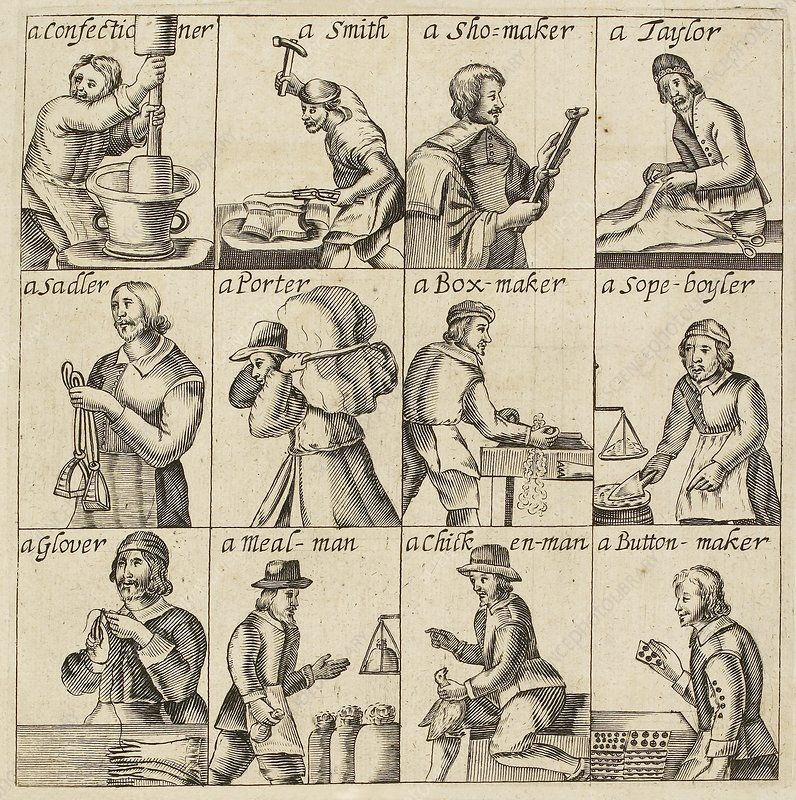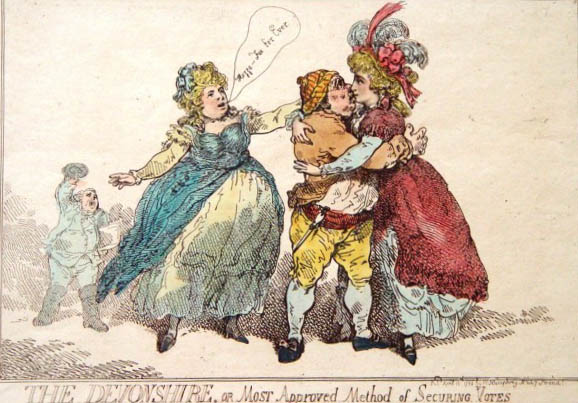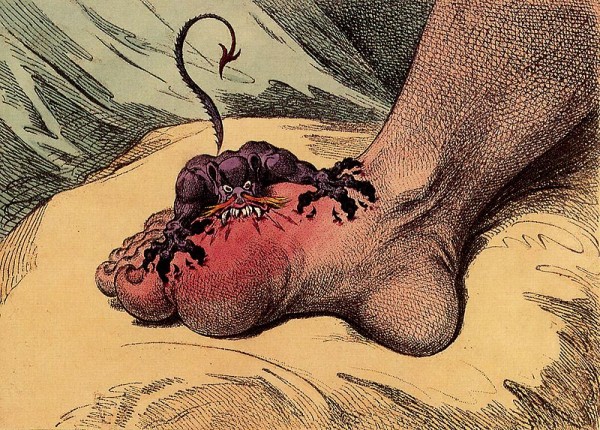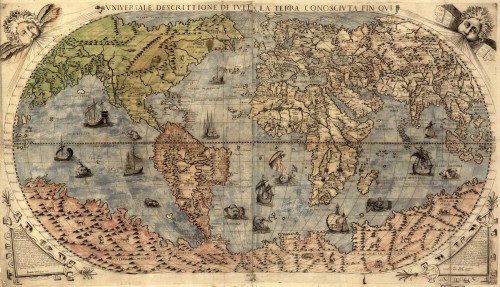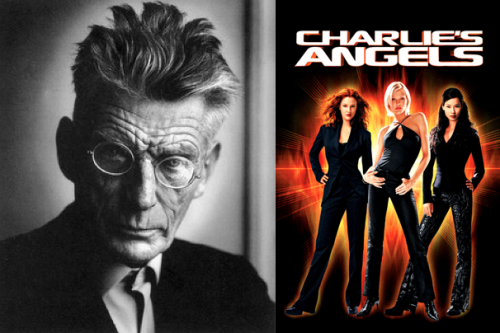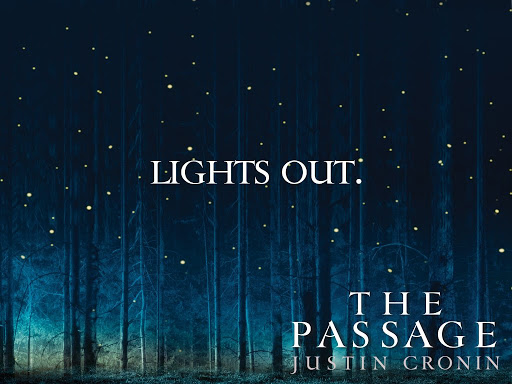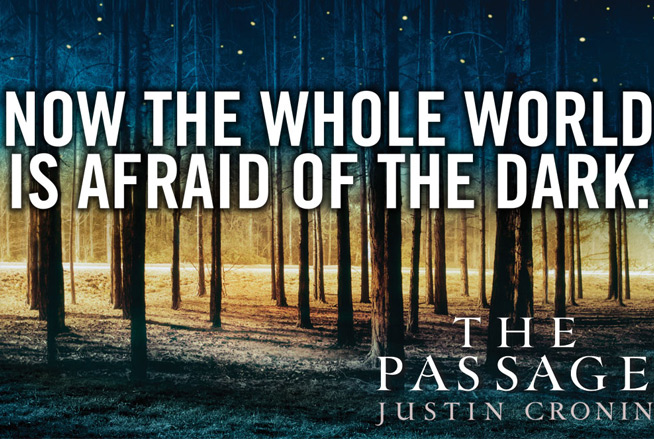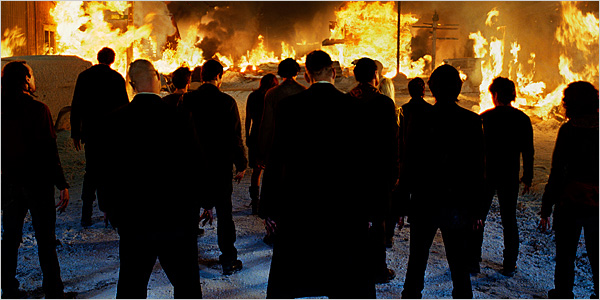The following is a review of Spencer Jackson’s We Are Kings: Political Theology and the Making of a Modern Individual (Charlottesville, VA: University of Virginia Press, 2020). It will appear in a future issue of Eighteenth-Century Studies.
If you want to be able to appreciate what Spencer Jackson is up to in We Are Kings, it will help first to recall what John Milton was up to in Book 3 of Paradise Lost. A lot happens in Milton’s third book: We meet God for the first time, and also the Son, who immediately volunteers for a suicide mission, even as Satan is rocketing through outer space, landing on the sun, and asking anyone he can find whether they know the way to Earth. Book 3 also contains Milton’s compressed account of the End of Days—God’s insurrectionary Five Year Plan, which is to unfold in three stages:
Stage #1: Already here, in humanity’s earliest days, God is losing interest in ruling as a monarch, choosing instead to hand his sovereignty off to Jesus, who is in some respects a lesser being, and who uniquely in his person will end up sharing that power with humanity. So that’s two sharings now: God is going to share power with the one who shares power. In the figure of the Son, God and humanity will in some not fully manifest sense rule together and so un-sovereignly: He “shalt reign both God and man” (3:316-17). What had been God’s power alone will eventually become a condominium of two. (Or is that three? Or is it many?) Power has already started its trajectory out- and downward.
Stage #2: When the millennium comes, this figure of shared power is going to undertake a world revolution, installing himself as “universal king” (3:319) and thereby ridding the planet of its particular kings: its despots, tyrants, and bosses.
Stage #3: The universal monarchy’s last act will be to abolish itself. The Un-lord will become immanent in the world, which will henceforth be self-governing: “God shall be all in all” (3:343).
Our historicist scruples will never be pedantic enough to suppress the observation, as it flits across the mind, that Milton has in the passage of #2 to #3 anticipated the Bolshevik theory of revolution at its most controversial point: centralization as the counterintuitive path to decentralization, the amassing of power by one determined to give it all away. But we don’t have to establish that point here. For now, it will be enough to grasp that Milton’s prophecy also furnishes Spencer Jackson with the template for his argument. You might hear me as saying that Jackson has something new to report about Paradise Lost, but that’s not it. He has surprisingly little to say about Milton, in fact, and nothing at all about the epic’s third book. The point is rather that Jackson has silently and perhaps unwittingly modeled his book on Milton’s apocalypse. What if the millennium—the redeemed world, the all-in-all—had almost come to pass in 1812? Such is Jackson’s question to his readers. And what if its gospel had been eighteenth-century British literature, and not just this or that title from its canon, but all of them taken together, one long Book of Revelation to foretell Babylon’s late Hanoverian downcasting? And what if we had overshot the kingdom of ends, had missed our chance to build the reign of saints on earth, because it hadn’t occurred to us to read Augustan satire and the early novel as sacred texts? And what if we now had another crack at it? What if we could have the millennium after all if we only corrected our readings of Alexander Pope and Samuel Richardson? We Are Kings is by all appearances an academic book, with eleven pages of endnotes and a University of Virginia logo on its back cover. But it is, in fact, something else altogether—a whirlwind scroll of radical Protestant prophecy masquerading, not all that convincingly, as literary history.
Jackson’s Miltonic scheme goes like this: John Dryden spent most of his career writing poetry that transformed the late Stuart kings into godlike figures, or better, into incarnations of the Christian God, humans invested with God’s power, redemptive figures who, committed to saving their people, handed down the law but were not bound by it. And yet not even Dryden remained a monarchist of this kind, and so with the discrediting of absolutism, he and other English writers were forced to wonder whether there were other candidates, besides kings, who could play the part of God-man. Who else could save England by standing outside the law while also enforcing it? Dryden accordingly ended his career by offering the job to an exemplary country gentleman. Pope, however, would soon offer it to the poet, which is to say to himself; Richardson to the Protestant woman with no special credentials; and Maria Edgeworth to colonized peasants and the enslaved. Jackson thinks he can show us that eighteenth-century writers did not, in fact, undertake the secularization of English letters. Whatever we usually think of as literary secularism—plots that rely more on causal explanation than on Providence, fewer collections of innovative devotional poetry, no more masterworks with archangels subbing in as guest narrators—this is not one of literary histories Big Stories. After the demise of divine-right monarchy, English literature, far from eliminating divinity from its pages, simply went looking for alternative people to sanctify. What we won’t want to miss is the stepwise descent traced by Jackson’s sequence, that decurrence of God’s power from king to Englishwoman to slave, ergo his sense that this more-than-literary history—the story, that is, of “the democratization of divine authority” (128)—had both a direction and a terminus. Sovereignty rolls downhill.
Such a book cannot be judged by the usual standards of peer review and the call for papers. As a piece of scholarship, it is the kind of mess that one sometimes calls “unholy.” Jackson describes Maria Edgeworth’s Absentee “domestic” (141) even though its hero is a) noble; b) a man; and c) almost never at home—the novel shows him, in fact, traveling extensively across two countries. He calls that same novel “anticolonial” (141) even though its happy ending shows Ireland’s Anglo-Protestant aristocracy resolving to intensify its government of the island it continues to occupy. He works up a visionary flight about a half page of Edgeworth’s prose by misreporting plot details and suppressing all the counterevidence that her novel supplies just two or three pages later. Indeed, he spends the balance of most chapters tsk-ing older scholars for “failing” to do x and “too quickly saying” y, and then, as the timer is about to buzz, staples a few fervent claims to isolated passages from whichever text he is currently scripturalizing. But listing the argumentative failings of We Are Kings would, in fact, be a cheerless task. One feels a little silly fact-checking John of Patmos.
Some of the conceptual issues that the book raises are nonetheless worth sorting through, if only to flag some of the difficulties that literary scholars are likely to face when they undertake to write political theology. The first problem to note is that Jackson’s sequence—from Dryden to Richardson to Edgeworth; from king and squire to Englishwoman to colonized peasant and slave—is wholly contrived. Jackson gives the impression that English writers dispersed God’s sovereignty through the polity in stages: that they had to beta-test it on country gentlemen first before offering it to women and that it had to work for the Pamelas before it could be extended to subalterns in the colonies. And yet, more extensive reading would surely have shown that each of these positions was available throughout the period and, indeed, before Dryden had written his first couplet. This is one reason that Jackson, despite his audible channeling of Christopher Hill—as when he takes for his theme “a distinct Anglo-American brand of socialism, one grounded in liberation theology” (179-180)—has almost nothing to say about Milton. For serious attention to Milton would explode Jackson’s timeline, bringing into view a Puritan revolutionary intellectual who presents in one swoop (and outside of Jackson’s chosen period) every single type on his list: the sanctified prophet-poet of Paradise Lost; the sanctified Englishwoman of Comus, who was, of course, the original of Richardson’s captive heroines; the sanctified, country-dwelling garden keepers of Milton’s Eden, Adam and Eve, who are also sanctified Native Americans, the naked denizens of “this New World,” “in native honor clad” (2:403, 4:287). The point is not just a literary one, of course. If the sanctified demos did not, after all, stand in line waiting for its number to be called, but rather rushed to convene itself in the 1630s and 1640s, when Scottish Covenanters showed English ones how to organize, then neither, too, did divine-right monarchism simply bow out once Dryden went Jacobite: De Maistre was still writing tracts on royal sovereignty in the generation of the Jacobins, Napoleon, and Maria Edgeworth. The term that begins Jackson’s sequence will still be available, in European letters, once his sequence has ended; and the term that ends his sequence was available before that sequence had even begun. What Jackson presents as the carefully paced rollout of divine authority across the English and Anglo-colonial polity—an apocalypse, yes, but one that proceeds in the orderly phases of a well-executed business plan—is better grasped as the messy contest of rival positions, coexisting in time and vying for supremacy on the same confessional field. It stands out, therefore, that Jackson’s Catholic and evangelical and Anglican writers never fight. Not at all: Each waits his turn to play the role appointed him in a chronology blocked out in advance by a Levelling and General Baptist God. We Are Kings offers up political theology with the politics left out.
The theology doesn’t fare much better. One of the more unusual features of Jackson’s argument is that it discusses divine-right monarchism, sovereignty theory, and antinomianism within the same frame. It might help if I restated each of these as propositions. Jackson considers the ideas, respectively:
- that kings rule because God wants them to and, indeed, that individual kings have been placed on their thrones by Providence;
- that there needs to exist, in any political system, a moment of authority that, because beyond legal review, will be capable of terminating debate on ambiguous issues; making necessary decisions in conditions of uncertainty; and acting swiftly during emergencies;
- that Christian morality is not a matter of laws; that Christians in any situation need to figure out what is right without reference to rules, which are a lure and a constraint upon the spirit; that Christians are called upon to live a life beyond the law and perhaps to build societies that to whatever degree possible lift the yoke of law from their members.
What stands out about We Are Kings is that it tends to treat these three ideas as at heart the same position. Historians of modern political cultures are sometimes interested in how the promises of liberalism have been extended progressively to more and more members of the socius. Liberalism, after all, says that it thinks of everyone as a rights-bearing individual, but has a notably hard time finding room for everyone in that “everyone.” So how and when did women actually attain the status of rights-bearing individuals? How and when did Black and indigenous people attain that status? How about people without property? Jackson’s argument proceeds very much on this model, but in the place of the rights-bearing individual he has placed the improbable figure of the king—how did x-and-such a group attain the status of kings?—which means that he expressly thinks of democracy as a paradoxically universalized monarchism, and of antinomianism as nothing more than sovereignty theory in a different class register, a decisionism for plebes. The claim is not wholly unconvincing. It is easy enough to spot certain affinities among the three positions that anchor Jackson’s argument. Divine-right monarchy and sovereignty theory can swirl together into a generic royalism. Antinomianism and sovereignty theory each posit figures who dwell beyond the law. So maybe the monarch is just the antinomian-in-chief and the ordinary Protestant a Mr. King. And yet the last-named are not for all that the same position, not in the way that a liberalism that includes women can seem like the plain correction of the version that omits them. Even sovereignty and divine-right monarchism are disjunct theories, since it is possible to hold that God has appointed a king to rule over you without automatically concluding that the monarch can therefore do anything he wants. More to the point, the three positions take their cues from different theological and biblical prompts. Divine-right monarchism cites the example of the Israelite kings elevated by God in the Hebrew Bible, while also translating medieval understandings of priestly and papal power in order to conceive of the king as sacerdotal, which is to say as God’s proxy or super-priest. Sovereignty theory, meanwhile, borrows its concepts from thirteenth-century voluntarism—from the idea, that is, that God is not bound by his own rules; that there is no one right way for the cosmos to be, and no best way that God, because supremely rational, has merely deduced; that the cosmos is the particular way that it is merely because God has willed that it be so; and that He could have willed it otherwise. Sovereignty theory merely repeats these claims at the level of the state—that there is no one right or even best way for a state to be &c—and in that sense makes of the sovereign a political God. But the Calvinist path to antinomianism (though there are others) insists on the Christian’s inability to emulate God, beginning rather from the wholly Christocentric idea that Jesus’s judicial murder abolished the law, as also from Geneva’s usual souped-up theory of grace: that Christians do not save themselves by being well-behaved, that they are saved only by God and for reasons known only to Him. The political imaginary that this liberation Puritanism yields is thus quite different from the one that Jackson describes. The English antinomian is not a petty kinglet, but a hypothetically condemned person living (joyously, gratefully) under reprieve.
We should thus be on our guard when, in his discussion of Clarissa, we see Jackson describe antinomian Christians as “the lawless source of all law” (132), since that phrase is the clearest evidence that the scholar has pilfered the language of Bodin and Hobbes in order to put it in the mouths of Dissenters and Nonconformists. “The lawless source of all law” works rather well as a gloss on the sovereign as theorized by the seventeenth century’s state-of-the-art political philosophy, but makes an utter hash of antinomianism, which arrives not to establish the law, but simply to eliminate it. A similar problem arises when Jackson describes as antinomian the Lutheran “idea that all believers could through faith alone (sola fide) assume the shape and sovereignty of God” (131). Luther does, of course, sometimes write as an antinomian: just not here—not when he sola-fideizes. The doctrine of antinomianism says that you can and need do nothing in order to be redeemed by God, whereupon solafiderianism steps forward to scale back mercy’s astounding proffer by insisting that there is this one thing that you have to do after all, which is believe. Sola fide thus marks the survival of the rule-making contractualism that Protestantism had briefly seemed willing to do without. The coexistence of anti-legalist and better-believe-it arguments in Luther’s writing has never demonstrated their equivalence, or even their compatibility, but has merely installed a rift in Protestant theology that has played itself out in the reformed churches’ centuries-long tendency towards schism. What’s more, Jackson’s notion that each Protestant claims his portion of God’s authority misses the actual scandal and preposterous dare of radical Christianity, which is not that we will all be empowered, but rather that our weakness will bind their very strength. Jackson is so busy misassigning to the sects the paradox of sovereignty that he never gets around to discussing antinomianism’s own and better paradox.
Jackson also argues that eighteenth-century evangelicals should be called antinomian for the simple reason that they introduced innovations into Anglican worship, going so far as to set up parallel institutions within the English church, and sometimes in defiance of their bishops. He argues further that Clarissa is British fiction’s paradigmatic evangelical, the one who reveals “the modern British subject’s antinomian heart” (107). By this point in We Are Kings, the problems are piling up, because when a Christian substitutes her private judgment for the judgment of the constituted authorities, that act is not all by itself a form of antinomianism. An orthodox believer might, after all, reject civil law in favor of canon law (or halakha or sharia)—she might knowingly and on principle violate the statutory law of governments—but she has not thereby become antinomian, since she is manifestly substituting one law for another. Even the Kantians—and it is Jackson’s tendency to treat antinomians as Christo-Kantians—even the Kantians who reject both church law and civil law remain nomian to the extent that they proclaim their adherence to the moral law within. There may, indeed, have been antinomian tendencies among the mid-eighteenth-century’s field preachers and proto-Methodists; the problem is simply that Jackson hasn’t cited any.
The same doubts will now churn around Richardson. Is Clarissa speaking as an antinomian when she says “the LAW shall be all my resource: the LAW … The LAW only shall be my refuge!—” (Letter 282)? Is Richardson, who held from the Crown the commission to print British law, writing as an antinomian when he has Clarissa compile her case against her violator, which the two of them together, character and author, will place forensically before the judging reader? Do we expect an antinomian novel to conclude the way this one does, with an authoritative legal document, Clarissa’s will, which Richardson has written out and included in toto, to the tune of fourteen pages? And how are we to respond when Lovelace, the novel’s villainous libertine and Clarissa’s attacker, says “The law was not made for such a man as me” (Letter 174)? Is the rapist the authentic antinomian? Do we know for sure who in Richardson is law-loving and who beyond-the-law?
Jackson, at any rate, persistently misdescribes antinomianism, which asks Christians to make do without the law, as a contradictory conjoining of lawlessness and law. The lawless term somehow produces law, even as the nomos eventually yields its own negation. It is true that radical Protestant writers sometimes dealt in transpositions of this kind. The only reason that Milton could write in the borrowed accents of a Stuart loyalism and so pose as a repentant ex-revolutionary—“Henceforth I learn that to obey is best” (12:561)—is that he knew that militant fidelity to God-our-king would absolve Christians from submitting to any actual kings. Obedience would transmute in one to universal disobedience—the only surprise here is that monarchist readers ever fell for the trick. Jackson’s rendering of antinomianism is thus not simply a mistake—or if it is a mistake, it is an mistake of a rather compelling kind. The most interesting passages in We Are Kings are the ones where Jackson undertakes some Miltonic transpositions of his own—where he offers, indeed, to multiply this authentically antinomian procedure: In Jackson’s pages, the “political theology” of Carl Schmitt and the Catholic Right remakes itself as the “liberation theology” of Luther, Gutierrez, and Howard Thurman; Foucauldian discipline reinvents itself as a viable left-liberalism (while still remaining visible as discipline); the British Empire accidentally produces the democratic multitude; Maria Edgeworth read asquint becomes a second William Blake; and our own neoliberal workhouse of self-management and self-care, by universalizing the arts of government, offers to bring about “a society of the equally sovereign” (182), which would also be “socialism” (1, 174, 179), which would also be apocalypse. And the unspoken claim that seems to underwrite these variously redemptive capsizings is that we should retain the word God to name whatever it is in history capable of effecting such reversals, which to be sure display the chiasmatic structure of good gospel blessings: The x shall be y. The last shall be the opposite of last.
In Areopagitica, Milton spells out what can reasonably be called an antinomian theory of reading. Books, he says, don’t amount to much. Parliament should let censorship lapse—or let it stay lapsed—not because books are so precious, but because they are irrelevant, not even important enough to keep tabs on. A book, after all, can’t make a person do or think anything, since we will each scry in a text only what we were predisposed to see there before we started reading. A good man will find his virtue reflected back at him even from the pages of a base book. A profligate will make pornography of the veriest scripture. It is to that extent unfair to conclude that Jackson is wrong about eighteenth-century literature, when it would be more accurate to say that he is reading with the spirit, running across aristocracy in Dryden and somehow noticing only “democratization” (55); meeting a disenfranchised Catholic man in Alexander Pope and discerning in his features a liberated Protestant woman (69); consulting the pages in The Absentee in which Irish peasants fall to their knees before their ethnically English overlords and perceiving in those figures only anti-colonial rebels rehearsing revolution (165 – 177). Jubilee, finally, is all a good reader can see.

